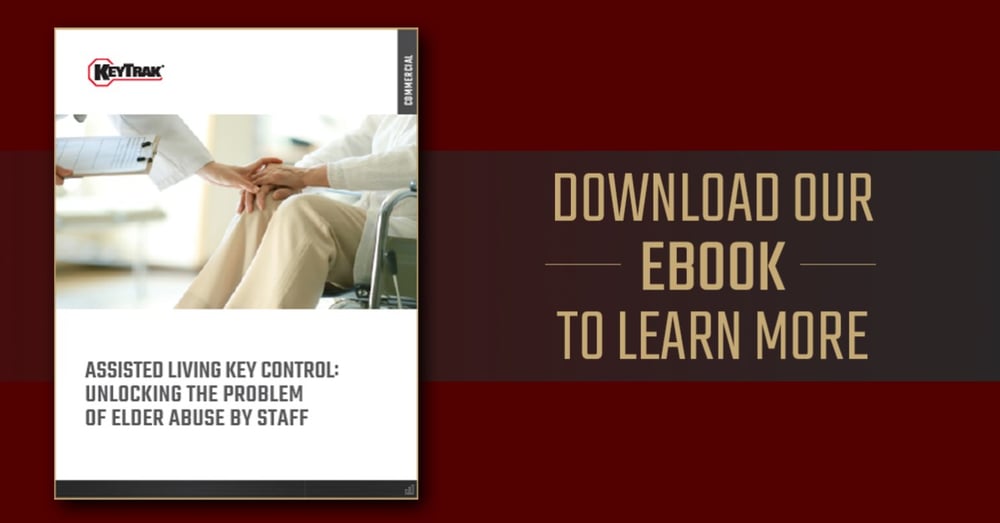If your parents or grandparents moved into an assisted or senior living facility, what level of care and safety would you want them to receive? You shouldn't go to bed at night worrying about an employee of the facility using their access to steal from your family members. Yet, we repeatedly hear stories in the news about assisted living employees taking advantage of our loved ones. For example, an activities director at an assisted living facility stole heirlooms from residents and pawned them. When you can't hold your employees accountable for their access, you put your residents and your business at risk. Here are three reasons your facility needs better key control.
In an age where everybody has a smartphone and a social media account, how the public perceives your facility is incredibly important. Don't fall for the idea that the elderly don't have smartphones — 89% of adults over 50 own phones! Even if they don't, they will certainly complain to relatives, who will take to social media and review sites to vent their frustrations.
If your employees are abusing their access or your facility isn't safe, the internet is going to hear about it. Key control isn't simply about keeping keys secure. It helps you provide a safer living experience. Using an electronic key control system that automatically tracks access will hold your employees accountable and ensure that keys are returned promptly. Such systems should also be capable of notifying those smartphone-using residents or a family member when a key is checked out, giving them peace of mind and the knowledge that you respect their property.
When something goes wrong at your facility and you can't hold your employees accountable, residents will hold your business responsible. An employee might be arrested for stealing from a resident, but the lawsuits will follow if you didn't do enough to prevent the employee from abusing their access.
You must take steps to better control your keys and track employee access to residents and their rooms. Manual access logs are often rife with errors or ignored outright, and keys left on a pegboard are not much more secure than leaving them on a desk. An electronic key control system will give you a verifiable and accurate audit trail, helping you reduce risk and know exactly who is responsible for a key at any given moment.
Managing Your Reputation
In an age where everybody has a smartphone and a social media account, how the public perceives your facility is incredibly important. Don't fall for the idea that the elderly don't have smartphones — 89% of adults over 50 own phones! Even if they don't, they will certainly complain to relatives, who will take to social media and review sites to vent their frustrations.
If your employees are abusing their access or your facility isn't safe, the internet is going to hear about it. Key control isn't simply about keeping keys secure. It helps you provide a safer living experience. Using an electronic key control system that automatically tracks access will hold your employees accountable and ensure that keys are returned promptly. Such systems should also be capable of notifying those smartphone-using residents or a family member when a key is checked out, giving them peace of mind and the knowledge that you respect their property.
Reducing Liability Risks
When something goes wrong at your facility and you can't hold your employees accountable, residents will hold your business responsible. An employee might be arrested for stealing from a resident, but the lawsuits will follow if you didn't do enough to prevent the employee from abusing their access.
You must take steps to better control your keys and track employee access to residents and their rooms. Manual access logs are often rife with errors or ignored outright, and keys left on a pegboard are not much more secure than leaving them on a desk. An electronic key control system will give you a verifiable and accurate audit trail, helping you reduce risk and know exactly who is responsible for a key at any given moment.

Keeping Up With an Evolving Industry
The landscape of senior and assisted living is evolving, giving people a number of options for spending their final years. It's more important than ever for your facility to provide top-notch service and be a safe and secure place for your residents to live.
The industry has recently seen the growth of home healthcare options, as well as the emergence of multi-generational housing, senior-friendly neighborhoods, and senior cohousing. While you provide an important service to our society's elderly, the reality is it is still a business and you must remain competitive with the variety of options available. When you make your facility a safe place to live with employees who care about your residents and respect their property, you'll be able to set yourself apart.
The residents of your assisted living facility deserve the same level of care and safety you'd want for your own family members. The industry is changing, and it's time to step up to the plate for all your residents.
This post was originally published in 2020 and updated in 2025.


